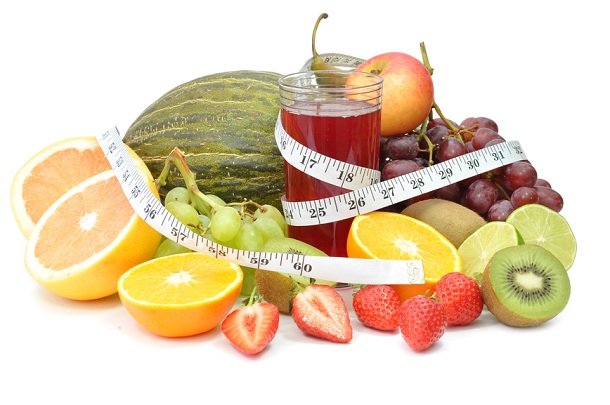Not long ago ‘food’ was just ‘food’ while ‘eating’ implied just ‘eating’. As long as we had the means to provide oneself with food that satisfied our five senses and the palate, there were no qualms about it. But life changed at an electric speed. If you have been to a swanky hospital consulting a good doctor, you have already been compelled to see a dietician against your will, under the tag of ‘hospital policy’ which incurred you a good amount of hard earned money and if you have been through that, you know what I am talking about. Food, which is basically anything that nourishes your body and helps in its development & growth, an age old definition, has now been metamorphosed into ‘Healthy food’, while ‘eating’ is now ‘healthy eating’. All this latest slice of paranoia relating food intake-diet plans, weight management, diet counseling, BMI, ideal weight- has bitten us one way or the other. Not to forget about many diet counseling centers that seem to be appearing in and around the city with quite an aura.
Having studied Dietetics & other related sciences, for three whole years, the subject amused me quite a bit. The very sound of the subject proved to be a magnetic force attracting not only the young but the middle-aged and old as well, and of course, the unforgettable blitzkrieg of questions- How can I lose weight? Could you give me a diet plan? Does green tea help? Any healthy foods I must take? Despite my pitiable plight, the situation only seemed to reaffirm how badly food and health has been hounding most of us. This is not to belittle their awareness in the matter but once again, the projection of food with respect to health through various media has been overly magnified and very sensationally presented.
All this latest slice of paranoia relating food intake-diet plans, weight management, diet counseling, BMI, ideal weight- has bitten us one way or the other. Not to forget about many diet counseling centers that seem to be appearing in and around the city with quite an aura.
Before we take a headlong plunge into the matter, let us attempt to understand health. Apparently, it is ‘not just the absence of a disease’ as we assume it to be but also ‘the state of complete physical, social and mental well being’ as defined by WHO. Having said that, who among us can now claim to be healthy? To solve the problem with that, another term ‘optimum health’ has been provided which still doesn’t seem to give a relationship between food and ‘complete health’. Food only caters to the physical sphere and to some extent perhaps the mental sphere but I can’t help wondering how would it help a socially not-so-sound person? Somehow we seem to be feigning when we say ‘healthy eating’. Most of us eat healthy and workout only to have a good physique or to look better in the mirror expecting awe-struck plaudits, forgetting its implications on our psyche. What we often get to read about food and health is not always authentic to the hilt. If one rummages through the sources, one will find that the subject is still under study or is research-based and you just might read the opposite after a few months of frantically following the ‘Eight Foods to Avoid to Prevent Heart Diseases’. You don’t agree? Saturated fats and cholestrol that have always been considered as the ‘bad guys’ for a healthy heart don’t really seem to be that bad. It may sound unnerving to a diet-freak but it’s all over the search engines. If you try one and get confused as you ought to be, I would suggest you had better start eating those eggs and meat and whole dairy products that you have been avoiding all this while.
Plus, reducing calories doesn’t mean skipping meals or starving oneself to a death-like state or eradicating fat from our diets. That definitely doesn’t give one license to avoid eating or become fastidious about food or count calories every time scrumptious food is presented in a plate. Inadequate food intake results in undernutrition and inevitably, malnutrition. A high intake of food results in overnutrition or obesity. The above extremes are, in majority of the cases, a by-product of our improper dietary habits.
The problem, you see, is not with ‘what we eat’. It is with ‘how we eat’, in other words, ‘the portion size of foods’. One doesn’t really have to understand the jargon of portion sizes or the amount of calories or the five-food group system which claims to help a layman plan a diet for himself. A little stroll into the days of old-school science will help one understand better. There are three major nutrients in our food, namely-carbohydrates, fats and proteins. Carbs and proteins each give the same amount of calories (approx. 4 kcal) per gram while fats give 9 kcal per gram. Carbs because of their use as a primary source of energy for the body should be higher in amounts, while a lesser amount of protein and still lesser fat will do for the day. Besides that, we all know we must consume fruits and vegetables since childhood. Veggies are good for your health, remember? Carbs come from cereals, protein from pulses, meats and milk products and fat from meat and oils, to name a few common sources. Does that help to understand a balanced dietary intake? Let’s make it easier.
Of all the jumble of do’s and don’ts, the harrowing ways of planning a diet and sticking to it, and all the research study which very subtly impart partial knowledge, none seem to give a sound method of ‘healthy eating’. The only statement I find solace in is- ‘one third for food, one third for drink and one third for breathing’. To quote it in full, it is as follows:
“A human does not fill any container worse than his stomach. It is enough for a human to have some morsels to satisfy his hunger. If he must eat more, then it should be one-third of his stomach for food, one-third for drink and one-third for breathing.” (Tirmidhi& Ibn Majah)
Those words, though said by the Prophet (pbuh) years ago, make sense even today. If one were to reduce food intake to one-third of their stomach, wouldn’t the amount of carbohydrates, fats and proteins automatically fall in proportion, or at least be less than the harmful excess? If one were to eat food to satisfy one’s hunger, would there be any undernutrition that is not related to a disease/disorder? Moderate food consumption eliminates excessive storage of fats and carbs and before you know it, they are already utilized by the body to produce energy. Unlike most dieticians, who succumb to the lure of lucre and talk of food in a manner so flippant and insouciant, the Prophet (pbuh) attached much sentiment to food. He taught us to be grateful about it, for it is sustenance from above and taught us to share- ‘the believer is not he who eats his fill while his neighbor is hungry.’ (Bukhari)
Of all the jumble of do’s and don’ts, the harrowing ways of planning a diet and sticking to it, and all the research study which very subtly impart partial knowledge, none seem to give a sound method of ‘healthy eating’. The only statement I find solace in is- ‘one third for food, one third for drink and one third for breathing
A student of Food Technology will be well aware of the statistics of BPL (Below Poverty Line) families, who can’t even afford one square meal a day. Keeping that in mind, it feels strange that we still don’t cease to be so foolishly particular about food and continue to speak about it in the same manner as the professionals do. If we were to think of ‘food for our selves’ a tad less, we would perhaps be thinking more about ‘food for others’.
In a nutshell, including special foods and avoiding foods that may cause harm is required, though not necessarily, only for invalids, patients and during convalescence. Special attention may be given to foods in case of a long history of a disease in a family, a job done exceptionally well by a doctor. So, the next time you decide to meet a dietician or a diet counselor, know well that he or she is just going to figure out your flawed dietary habits through a ’24-hour dietary recall’ and fix the same through the most sought-after, moneymaking ‘diet plan’, the result of which can be achieved with élan on your own, with a little sprinkle of resolve on a plate of effort and dedication. That would be one recipe to some genuine success and satisfaction.






